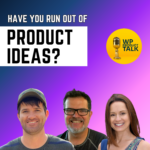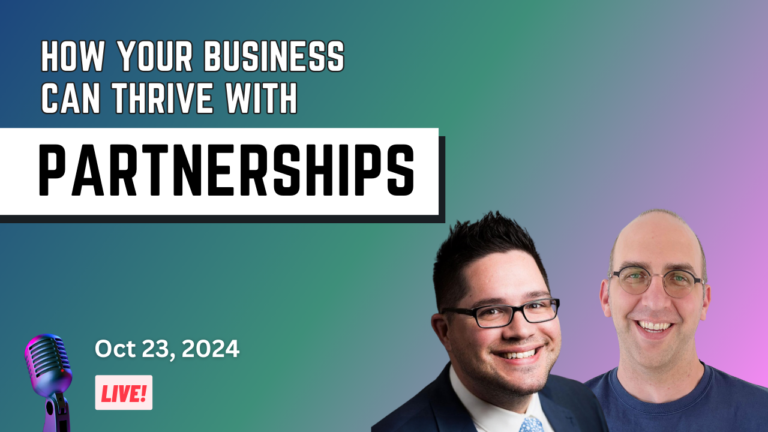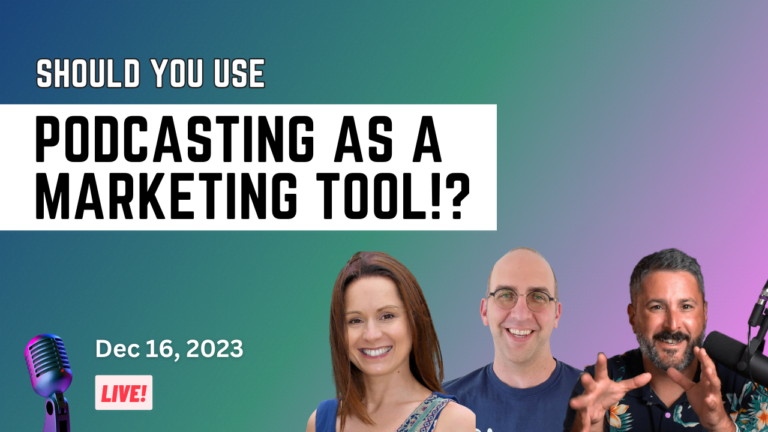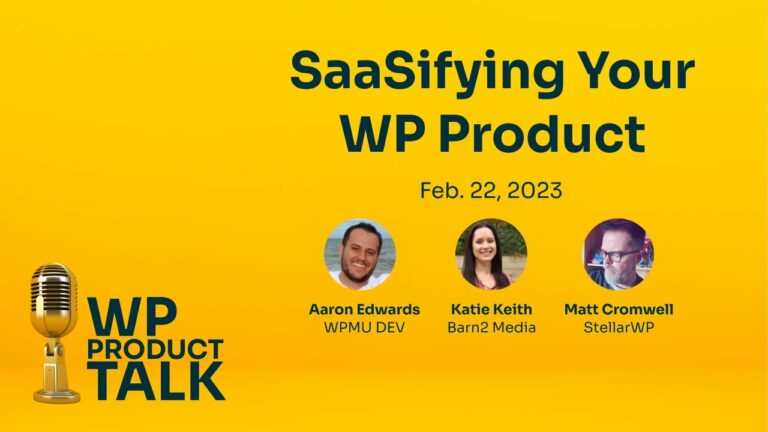
This episode of WP Product Talk explores the magic of “Unlocking the Genie of WordPress Product Innovation” with Ben Ritner, founder and creator of KadenceWP. Ben will share his unique insights and hands-on expertise to help you discover new avenues for creativity and innovation within your WordPress product business.
Overall the discuss was rich on the importance of innovation in product development within the WordPress ecosystem. Here are some key insights:
- Listening to Users: A major theme highlighted by Ben Ritner is the value of listening to user feedback. He emphasizes that successful innovation often stems from understanding user needs and pain points rather than just focusing on technical prowess or market trends.
- Being Your Own Customer: Ritner also talks about the importance of using your own products to identify issues and areas for improvement. This approach helps ensure that the product remains relevant and user-friendly.
- Balancing Innovation with Familiarity: There’s a delicate balance between introducing new, innovative features and maintaining enough familiarity so users don’t feel alienated. Successful products often manage to introduce innovations that feel both fresh and intuitive.
- Innovation as a Necessity: Zack Katz discusses how products must continually evolve to stay relevant. He mentions that “innovate or die” is a critical mindset because stagnation leads to obsolescence as user needs and technological landscapes change.
- Long-Term Planning: Both Katz and Ritner stress the importance of looking beyond immediate product features and focusing on long-term product strategy and market trends. This forward-thinking approach is crucial for sustained innovation.
Best Advice from today’s Guest and Co-Hosts
The best advice shared in the podcast, particularly towards the end, revolves around the continuous cycle of innovation and relevance. Katz stresses that product developers need to be proactive about innovation, suggesting that companies should “cannibalize their own products” to stay ahead, much like how Apple did with the iPhone and iPod. This proactive approach in innovation ensures that a product stays ahead of competitors and remains relevant in changing markets.
This advice is a strong reminder for product developers and business owners that innovation isn’t just about creating new products but also about continuously improving and adapting existing ones to meet emerging customer needs and market dynamics.
Transcript
Show/Hide Transcript
[00:00:00]
[00:00:00] Zack Katz: Hello, this is a WP product talk, the place where every week we interview an experienced WordPress product owner on strategies, tips, experiences, failures, and successes of running a successful and thriving WordPress product business. I'm Zach Katz, founder of Trusted Login and Gravity Kit.
[00:00:53] Matt Cromwell: And I'm Matt Cromwell, co founder of GiveWP and senior director of customer experience at StellarWP.
[00:01:00] Zack Katz: And today's topic is unlocking the genie of WordPress product innovation.
[00:01:06] Matt Cromwell: I had a little fun with that title. I was like, yeah, it's like a mystical thing. You know, it's like, I wanted to like try to broaden our imaginations. Um, and truthfully in the WordPress space, we're all innovative. Like, I want to say upfront, like, I think we're all innovative.
[00:01:23] We wouldn't be in WordPress if we weren't. Um, so. But sometimes there's like this special something that a product has that, that you're like, Oh man, that one's going to take off. Like this one's going to really do it. Um, and being able to tap into that is, And sometimes from the outside looking in, sometimes it can look like luck or fortune.
[00:01:43] Um, but as I've gotten to know different people over the years, often, it's just a lot of hard work and being focused on like making sure that you're doing something unique and special. Uh, there is an art and a skill to it. So, um, and I don't feel like people talk about this enough, so I'm excited to talk about it personally.
[00:02:01] Zack Katz: Well, to talk about it with us today is our special guest, Ben Rittner.
[00:02:07] Matt Cromwell: Ben. Hey. Welcome, Ben. Thanks for being here, man. Can you, uh, introduce yourself to the world for us?
[00:02:14] Ben Ritner: Yeah, I'm Ben Rittner. I am the founder of Cadence WP, and right now I work at Stellar, mostly working on Cadence and doing a little bit of, uh, thought innovation, I guess, inside of all of Stellar.
[00:02:30] Matt Cromwell: Awesome.
[00:02:30] Zack Katz: Great. Thanks. And, uh, for those of you who are in the live chat, please, uh, feel free to comment and we will answer any questions that you have, uh, as, as they come up where, uh, you have open access to an innovative mind with Ben and, uh, also with us, I hope, uh, to some extent,
[00:02:51] Matt Cromwell: hopefully a little bit more or less.
[00:02:54] Zack Katz: So I think this product, uh, this topic is so important for product owners because it's so easy to not innovate, to not try to push the envelope of what's possible, what's expected, um, what is a standard procedure? And it's easy to say, well, okay, I'm going to just like, keep on iterating. And hopefully my product will get better without making any waves, without, without changing any paradigms.
[00:03:21] And it's easy to get comfortable and not dedicate time or money to, uh, to shaking things up and trying something new. So I think innovation is, is, uh, really a separate thing from, from development and product iteration.
[00:03:37] Matt Cromwell: Yeah. Yeah. Ben, how do you think about the subject of innovation? Like, even as you look back on like your success with cadence, um, do you think that Like it was because Cadence was innovative or what's your take on that?
[00:03:54] Ben Ritner: Yeah, I mean, it's a big topic. I think like my number one thing I would say is like more than being a genius. It's listening to your users. Because there is a part of it where it's like, users don't always have it right and you need to be like, no, let me show you the way, um, but I would say the biggest successes has come from like, actually paying attention to the feedback and being like, willing to go back and go, Okay.
[00:04:28] We did this wrong. Let's figure this out. Yeah. Um, and so that, and then being your own customer is huge. I still manage quite a few sites on the side. Don't get paid for it. Just cause I want to make sure I'm still a customer of my own products and I'm still thinking in that mindset and I'm still using the products and going, what's my pain points.
[00:04:51] What do I wish I could do? What's like, what's awkward about this, you know? And that's hard to do when you're in it. Because like, I know where everything lives and I know where the settings lives, because I put them there. So you've got to, you've got to like step back a little bit on your own stuff. But I think in large part cadence.
[00:05:11] And if you look at like, why was it successful? What happened? You know, I put it into like. The first product we made, I just did everything that I wanted it to have. And I was a freelancer. And so I created what I wanted. Um, and you know, invention is one thing, like if you're going to create an entirely new experience, That, that takes a huge amount of risk, a huge amount of like, you're going to have to teach customers and experience that they're not used to.
[00:05:43] That's really hard to do. Innovation is, is there's this wonderful line of like, how do I make something that feels like it should be here, but it's something completely new at the same time, and there's always that like give and take of like, you know, I've got to try to use, cause we're all working in WordPress, so I've got to try to use System to try to create a much better experience while not departing so far from core that it feels like a brand new experience and, and that's not to say that there's not great products that have created a brand new experience.
[00:06:19] I mean, Elementor is one that's like, Hey, it's huge. And it's had a very successful, um, time as being the number one page builder, because it created a new experience that ended up being something that people were like, Hey, this is, this feels a lot better to me. The other editor. And I think that's not to say, yeah, just to say you can't, yeah, there's no one rule, but getting feedback and getting feedback in general, because you don't know what your blind spots are and you will find.
[00:06:52] Matt Cromwell: That's what I want to lean in on a little bit because I've talked with you enough to know that like, I knew that listening to the customer was going to be your answer, um, or a big part of your answer. It's always, it's always
[00:07:03] Zack Katz: the answer.
[00:07:05] Matt Cromwell: And it's true. I want to say upfront, that's true. Like, but there, the art of it is.
[00:07:12] Taking what your users are saying and turning it into a solution. And that I think is where, because I think a lot of folks really do listen. They listen a lot, uh, or they, they, they rise up organically like you, like you did. And a lot of our experiences are. I'm building this site whenever I wanted to do X, it sucked.
[00:07:31] So I've made something that solved that problem. Um, and I'm my own customer. And then you start listening to other people that are like, Oh, I, I solved it in a totally different way. And you start doing that kind of thing. Um, but the ability to hear what they want or what they're saying they need and turning it into.
[00:07:49] something functional. I think that that's, that's the magic that's hard to unlock. Um, Zach, what, like, what do you think? Does that resonate with you or is that, um, The place that you're trying to lean in on,
[00:08:02] Zack Katz: you know, when, when I hear customers trying to accomplish things that aren't currently possible or aren't currently easy, and I'm stuck in the WordPress paradigm, I think to myself, well, what other, what other products in the world do this, not just in WordPress and how did they solve it?
[00:08:21] And I find myself realizing how frequently WordPress itself is a limiting factor, like the data structure. The paradigms that wordpress has for like the way that you interact with the admin and I, the innovation that I feel comes into wordpress often exists and has existed for years outside of wordpress.
[00:08:41] So I think that when, when trying to solve a problem, when trying to innovate, uh, look outside of wordpress and, and ask yourself if customers are having those same problems outside of wordpress, how are those being solved by whom? And what can we take from like, how can we. Integrate that learning into WordPress.
[00:08:57] Matt Cromwell: Totally. Ben, what would you say, how would you answer, like how did you take customer feedback and turn it into a product essentially? Like what is what? There's something in between there. There's like listening to your customer and then shipping something that actually solves their need, and this is the gap we're trying to talk in into a little bit what's happening in there.
[00:09:22] What do you do in that space?
[00:09:24] Ben Ritner: Yeah, I mean, there's always the like, the temptation to overbuild or overcome, like, make something too complex because you just create settings for every single possible scenario. Um, and so like, I think there's the product strategy of like, you need to take the customer feedback and put that into strategy for like, okay.
[00:09:48] You know, understand, understand, first understand who your customers are and who your market is. Like if, if you're listening to a customer that's on a fringe part of your market, um, you need to really balance what they're saying, but then coming up with a strategy for how this can be something that is easily taught and relatable across, obviously you get into a lot of things with like UI and like, that's so important as far as like the experience that the user's having with your product.
[00:10:21] Um, where like you can create something that fulfills a need, but it's such a bad user experience to like work with that. It's not going to be successful. So like innovation is just, it's just part of the puzzle. Like you've, you've got to be able to put. All of the pieces together to actually go from like, here's, here's how I want to do something.
[00:10:44] And then here's what the end product is going to be.
[00:10:47] Matt Cromwell: Yep. Let's focus in a little bit on the question, how we kick off most of these conversations is always about why the subject is so important. And I think like focusing on. Essentially, what happens to products that don't have good product strategy, for example, or products that aren't particularly innovative?
[00:11:07] Um, like in some way, I feel like the answer to this question is why is it so important is like, what are the consequences of not taking innovation seriously? Um, Zach, what's your take?
[00:11:19] Zack Katz: You know, it's, there's always a tension because when gravity view, for example, uh, launched, it was, I think, innovative in a way.
[00:11:28] It was a page builder for gravity forms data. That's really cool. And we're currently, uh, we've been for, for a few years now thinking like what's next, what do we do next? And that process involves a lot of, uh, understanding customer use cases, uh, taking some time, looking at other products. If, if we don't innovate, gravity view is going to eventually decline.
[00:11:52] That's the nature of products. They have a natural rise and fall. And, uh, and if you don't continue to innovate, you will end up, your product will die. So one needs to continue to innovate, to move past, uh, the current thing that's possible because the world is always moving forward. And of course the current.
[00:12:12] Uh, innovation area that people are interested in right now is A. I. So, like, what are the available innovative methods of dealing with form data with A. I. So that's a lot of what we've been thinking about. Uh, how how do we inside WordPress deal with that? Or do we have to go outside WordPress to deal with that?
[00:12:31] Like, Innovate or die is my take away because there's no, there's no stasis. There's no stasis. You can't just launch a product and say, well, it's done. Cause products are never done. Customer needs are never solved fully. They always evolve. They always, uh, so you need to evolve with them. And that requires innovating at some points when, uh, when the current.
[00:12:57] And I've said the word a lot today, but paradigm, the current paradigm shifts enough that your solution to this other problem no longer is as meaningful to your customers. You need to solve the next problem they're, they're about to have.
[00:13:08] Matt Cromwell: Yeah. So having a competitive advantage essentially is one aspect like, uh, of we're staying relevant, not even at advantage,
[00:13:16] Zack Katz: just like somebody out there is building something that will compete with us.
[00:13:22] We need to do that as well. We need to. You know, Apple released the iPhone that cannibalized the iPod. Uh, the iPod was already market dominant. Uh, but then the iPhone ate its, uh, its own product. So like we need to cannibalize our own products continuously.
[00:13:41] Matt Cromwell: Uh,
[00:13:41] Zack Katz: otherwise somebody else will.
[00:13:43] Matt Cromwell: Yeah. Ben, what's your take?
[00:13:45] Why is this so important for product owners?
[00:13:48] Ben Ritner: Yeah, I think there's for product owners, for me and even my history, like the temptation is. You just get into like, you get a little bit of success and you get into the focus so much on like what you're currently doing and just adding like, you know, I remember there being a time where like every single feature request, I was like, I got to figure this out.
[00:14:12] I mean, we get hundreds, you know, like, and it was always just like, you can get so tied into the day to day that you forget to sit back and go. I probably need to start working on what I'm going to be promoting two years from now, like at least in terms of strategy and thinking about it and giving yourself as a product owner, like your life is busy.
[00:14:32] It's crazy. The support, the, like the, you know, the bug fixes, all the things will prevent you from sitting down and doing. The market research and like really thinking about like, what is the next phase of this? What is this going to look like in two years? Is this going to be even a product in two years?
[00:14:51] And if it's not, what's my next product? Like really thinking through, uh, where you go from here. Long term brings about the best innovation in mind.
[00:15:02] Zack Katz: And what's your process for that? Do you, do you put something on the calendar? So it's like long term planning. Uh, what, how do you break it down from here's where we are.
[00:15:11] Here's where we might be going in the future. Like walk us through that.
[00:15:16] Ben Ritner: Um, probably for me, what forces my hand a little bit is marketing coming to me and being like, what are we doing? Which is nice. Cause then I'm like, I had to sit down and think about this. Uh, but yeah, I think there's a part of it like where you've just got to be in the know.
[00:15:33] Um, you got to invest the time to be in the know, you know, you didn't know what's going on with AI. You need like there's all these things that you just like you have to say like it's a lot of noise But I gotta consume it because I need to know where the market's at. I need to know what's happening in WordPress core.
[00:15:45] I need to know like what the future is for that. Thus I invest the time in reading, you know, like looking at the github tickets for Gutenberg or whatever like really Trying to invest into understanding where things are at right now and then doing the like taking the time to read the articles about what's coming and then you know if you're a product owner your mind's probably already going if you're aware of what's happening your mind is already like well how could that you know like you won't be able to stop that part of like what am I going to do next if now that I know this um at least I can't I can't I'm like You know, just wish I could turn it off sometimes and be like, it's okay.
[00:16:28] Like take a break. Cause I'm like, Oh man, I, I need to develop this. There's like a million things that I'm like, man, I just. Wish I could be working on that right now.
[00:16:36] Matt Cromwell: Yeah, absolutely.
[00:16:38] Ben Ritner: You have to go through the steps of like, I'm in this right now. I got to make sure this gets to completion, but still be planning for that future stuff.
[00:16:46] So for me, the biggest thing is, is just being aware of what's, what's going on. And then my brain kind of takes over. Yeah.
[00:16:54] Matt Cromwell: Yeah. I think on my side, when it comes to like, why. Uh, product owners have to be innovating. It, it does have a lot to do with what Zach was saying in terms of like relevance for the, and, and a combination of what Ben said to, um, relevance with the eye towards your next two to three years of relevance.
[00:17:15] Essentially, if you're not looking for what your market is doing right now and where it's going, there's going to be something disruptive that happens over the next two to three years that you can't anticipate, that you don't know exactly what it's going to be and how it's going to impact your audience.
[00:17:33] But if you're reading the tea leaves, if you're paying attention to the area in which your product exists, Um, and constantly thinking of ways to solve the problems that arise there. Um, then, then you, you're able to stay relevant through those, through those disruptive times. Um, like I, I, I, every once in a while I'll have a product owner come and say, Hey, I'm really working on this one thing.
[00:17:58] I think it's going to be cool. Um, one example recently is there's a lot of, um, AI bots coming up a lot, uh, chat bots and things like that. They're popping up everywhere. Um, I've kind of been a little bit, um, of a Debbie Downer on it in terms of saying, I don't, I actually don't think that those are going to be products in the long run.
[00:18:19] I think that we're going to have AI chatbots in ways that is so much more permeable throughout our whole ecosystem in a way that like,



